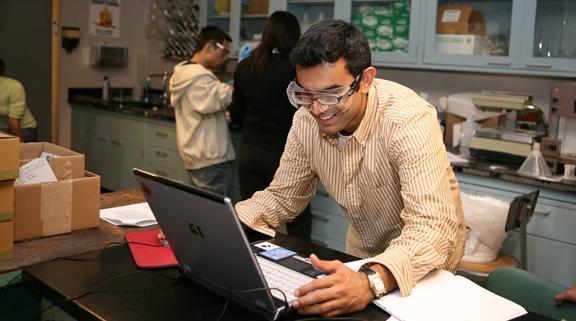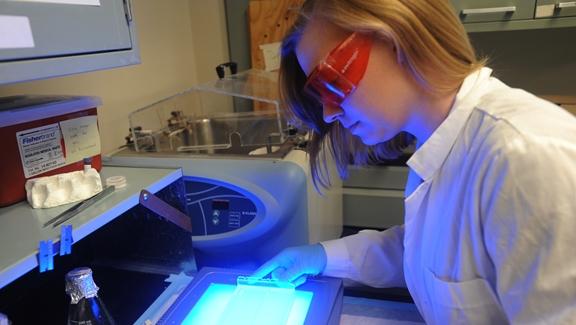Graduate Programs in Chemical Engineering
Whether you want to pursue a technical career in chemical engineering, focus on research, or enter into a position in academia, you'll be able to define your path here.
Choose one of three graduate programs offered by CBE: the Master of Engineering, the Master of Science, or the PhD in chemical and biomolecular engineering.
Why Cornell chemical engineering?
Stand-out facilities, leading faculty and research, Cornell connections, and a culture of collegiality.
CBE is part of the College of Engineering at Cornell University, an institution that was founded more than 150 years ago with the mission of making the world a better place. As part of the Ivy League, Cornell has a rich history of scientific discovery and human connection.
At CBE, you’ll find accessible faculty who work and teach in top-notch labs and facilities. You’ll have access to Cornell’s vast networks of researchers and professionals. And you’ll be among faculty and other graduate students who are just as passionate about the field as you are—and who will work alongside you as you accomplish your goals.
Why pursue a graduate degree in chemical engineering?
Chemical engineering touches every aspect of life. The world needs chemical engineers to find new technologies and approaches to solve challenges associated with oil and gas processing, food processing, pharmaceuticals, biotechnology, the environment, and more.
Think about it: Medicine, food, consumer products, energy, fuel—the most basic chemical products and processes that exist within these areas are continuously improved by practicing chemical engineers who apply research of their own and of their academic counterparts. A graduate degree will move you toward leadership positions in the industry and give you the experience you need to make meaningful research contributions.
Learn more about CBE's research areas:
Highlighted statistics from the Graduate Program!








